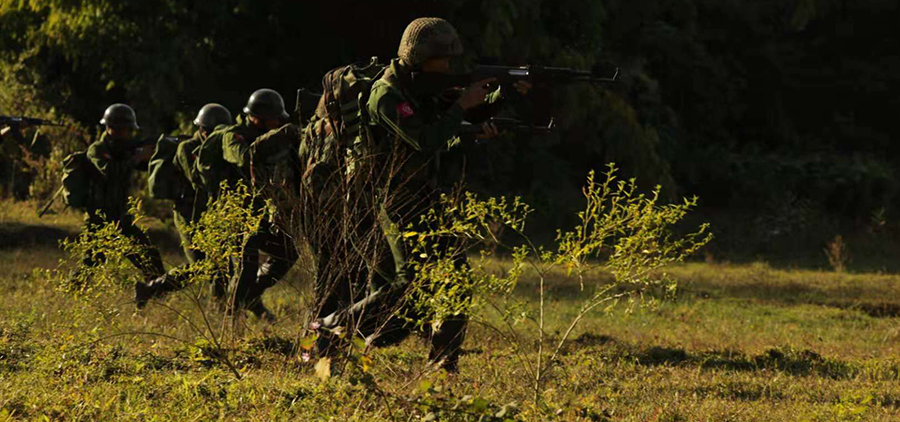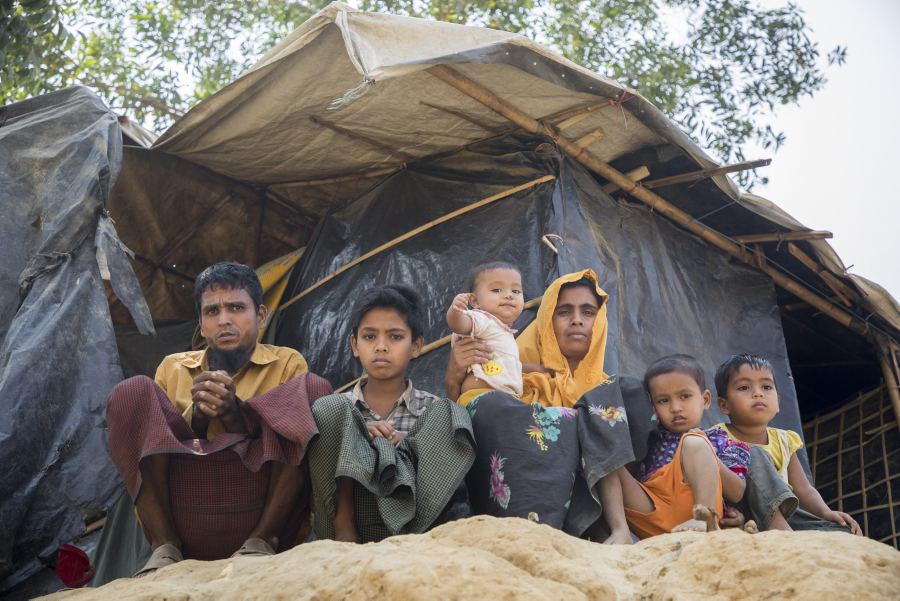- Over 3 million people displaced since Myanmar coup: research group
- Junta conscripts 500 Muslims in Sittwe
- Thousands of houses torched, bulldozed by junta in Buthidaung
- Driver killed, two injured as junta soldiers open fire on bus in Thandwe Twsp
- Regime shelling kills two civilians, injures another in two Arakan State townships
Restaurants feel squeeze of COVID-19 restrictions
Restaurants and other purveyors of dining experiences are facing mounting losses as demand has dipped amid COVID-19 restrictions, in place since April 11, that only allow for takeaway orders.
17 May 2020

Min Tun | DMG
17 May, Sittwe
Restaurants and other purveyors of dining experiences are facing mounting losses as demand has dipped amid COVID-19 restrictions, in place since April 11, that only allow for takeaway orders.
Food stalls and restaurants throughout Myanmar have been instructed to sell their menu offerings takeaway-only, as part of a raft of measures intended to prevent and contain the spread of coronavirus.
But one member of management at the RV restaurant in the Arakan State capital Sittwe said the revenue to expenses ratio has trended unfavourably since the dine-in option was eliminated.
“We have to pay tax and power bills. And we have to pay salary to our staff,” said Daw Ma Mya Thein, manager of the RV restaurant. “We also bought fresh meat, vegetables and other ingredients in bulk to operate our shop as usual. But the meat and vegetables rotted when we had to suspend service. We do not have income now. So, we face a big loss.”
Daily incomes are down almost across the board for restaurateurs, who are seeing the value that their now-empty dining spaces brought to the bottom line.
“People previously could have food on the premises of the food stalls with friends. Now, they can buy food just for takeaway. The sales of food for eating at the food stall and takeaway are different,” Ma Le Le Khaing from Arian Restaurant in Sittwe said of the coronavirus-induced sales slump.
Facing losses but wanting to maintain their customer bases, restaurants are keeping their shops open for takeaway, but have had to reduce the number of staff on hand.
Ko Kyaw Naing Lin, owner of the Arakanese traditional noodle shop Maw Late Monti in Sittwe, said: “We had to reduce our staff from seven to two because the income is lower and the takeaway system does not require many waiters.”
Although the government has instructed owners not to allow customers to eat food in groups on restaurant premises, a leader of the Sittwe Township Development Affairs Committee said not all are complying.
“‘Food stall’ means rice shop, tea shop, restaurant and roadside food stalls. All shops have been told to sell food for takeaway only. But some shops are accepting consumers to eat on the premises of their buildings,” said U Kyaw Moe, deputy director of the Sittwe Township Development Affairs Committee.
But even if local officials were to get 100% adherence to the restrictions by restaurants and the like, the intended effect — to eliminate the crowds that would make spread of the deadly virus more likely — is proving difficult to achieve; hundreds of people gathered in Sittwe on May 12 and 13 to apply for a teaching post there, prompting criticism of the government’s management of the recruitment process.
The national and local governments have told the public to avoid crowding and to wear facemasks when venturing outside the home, with action being taken, albeit in a scattership manner, against those in violation of certain public health orders.














